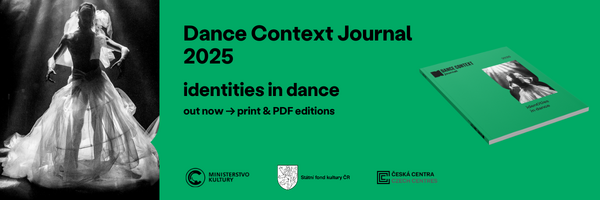In principle any kind of artistic activity can be funded, says David Dixon
The ability to raise funds for artistic activity outside the grant system increases the level of freedom and independence. But does one have to be born a fundraiser or can one become one? David Dixon, successful fundraiser and CEO of TrueMotion will give an online lecture about non-grant fundraising on 16th April 2024. Let’s introduce him and his experience briefly…
David, what was your journey to non-grant fundraising?
Before moving to the cultural sector I worked as a senior fundraiser in the head offices of the charity Oxfam where I saw the opportunities for many kinds of fundraising. In 1993 I became Head of Fundraising of my local theatre, the Oxford Playhouse and realized to my surprise that there was almost no non-grant fundraising in the cultural sector in the UK. I introduced many of the techniques which in the meantime have become well-established in the UK cultural sector.
Is fundraising a passion for you? What do you enjoy most about it?
I have always loved the arts, especially theatre, music and dance, but do not have the talent or courage to make an artistic career. As a fundraiser I can enable artists to create and as a business strategist I can help cultural organizations to flourish in the long-term.
Does one have to be born a fundraiser or can one become one? What qualities, characteristics, skills should a fundraiser have to be successful?
Fundraising is passion married to technique and this technique can be learned. Different forms of fundraising require different techniques: for example, a major donor fundraiser needs to be very good with people but a corporate partnership fundraiser needs to understand how a business works. The common feature is that a fundraiser must always think from the point of view of the other side and not concentrate on what you and your organization need.
What countries do the clients you work with come from?
Netherlands, Germany, Austria, Spain, Hungary, UK, US. In fact we can work with any European country.
How is non-grant fundraising currently developing in the culture in Europe?
Cultural organizations in Europe generally are funded from local and national government and from a few big foundations. This means they have no experience of non-grant fundraising and can often be uncomfortable with fundraising from individuals or businesses. There are very many myths which get in the way of developing new income streams! As the percentage of government funding falls, so organizations seriously investigate other sources of money.
Do you see any cultural differences in the perception/implementation/success of non-grant fundraising across the countries you work with?
Fundraising is the same everywhere. A technique which works in Dallas or Buenos Aires will work just as well in Warsaw or Madrid. The context is different but the work is exactly the same. Every time I start work in a new country people say „it won’t work here“ – but it always does.
Are there any types of activities, projects within the cultural sector that are generally very difficult to find funding for?
In principle any kind of artistic activity can be funded. The real questions are a) does the organization have a good network to start fundraising and b) is it prepared to invest time to develop these networks. Fundraising is often called „development“ because that is a better description of the work.
What has been the biggest fundraising challenge for you in your career so far?
I have introduced non-grant fundraising in several countries, especially in the UK, Spain and the Netherlands. The biggest challenge is internal i.e. resistance from the leadership of cultural organizations to take steps down a path which is new and uncomfortable for them.
What opportunities for non-grant fundraising do online media have for the field?
These days the term ‚online media‘ is almost redundant – we should simply say ‚media‘ since almost all effective communication is now digital. Digital media is the essential tool for communication including for fundraising. However, this does not mean that online is the best location to ask for or to process donations. That depends on your plans and your audience. Crowdfunding can work well, for example, but only in a limited range of circumstances.
Listen to the lecture HERE.
David Dixon
Since 1981, David Dixon has been working in fundraising, campaigning, marketing and board development in the non-profit sector and the cultural sector. He has enjoyed working with some great organizations and teaching and presenting in many countries.
David usually works closely with Directors and Boards to help make them stronger and more resilient. As Managing Director of TrueMotion David oversees the work of the team, contracts and client communications. He’s the lead consultant for strategy consultancy services and fundraising consultancy. David has worked personally worked many performing arts venues which present dance and directly with dance companies such as Northern Ballet Theatre (UK), Scottish Ballet, Nederlands Dans Theater and the Royal Ballet (UK).
About TrueMotion
TrueMotion came about as a merger of efesai and BECCA Europe in 2022.
BECCA Europe was the leading expert in the Netherlands on research, project development, application writing and reporting for EU funding and for some NL funds, working in the cultural and creative sectors. efesai was one of the leading experts in the Netherlands in business strategy and fundraising strategy for the cultural sector, with a specialism in private (i.e., not government) fundraising. efesai and its predecessor, DDA, have also operated in other European countries.
Bringing these two sets of experience and services together has created TrueMotion, a consultancy that offers a complete range of fundraising and strategic services for the cultural and creative industries and which now has clients in many European countries. For example, the company participated in the preparation of the successful grant application for the Creative Europe call of the European Dancehouse Network - EDNext initiative.



